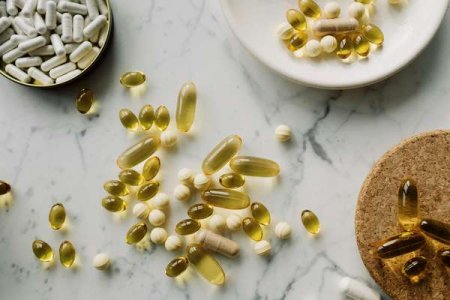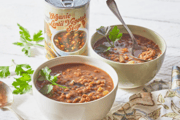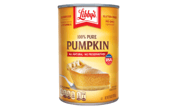Dietitians reveal the 5 supplements that could worsen your inflammation!
- Replies 0
In the quest for wellness and managing chronic conditions, many of us turn to supplements as a natural aid.
However, not all supplements are created equal, and some can even exacerbate health issues rather than alleviate them.
Inflammation is a natural response of the body to injury or infection, but when it becomes chronic, it can contribute to a host of diseases, including arthritis, heart disease, and various autoimmune disorders.
Here’s some expert advice from dietitians on the five supplements you should think twice about if you're dealing with inflammation.
1. Arnica (Oral Supplementation)
Arnica is a well-known homeopathic remedy, often used topically to soothe bruises and muscle soreness. However, when it comes to oral supplementation, the story changes dramatically.
“Oral arnica can be quite dangerous, especially for those with inflammation,” warns Melissa Mitri, M.S., RD. The risks of consuming arnica include serious side effects like heart damage, increased bleeding, and vomiting.
2. Chaparral
Derived from the creosote bush, chaparral has been used for its potential antioxidant and anti-inflammatory properties. Despite this, the herb carries a significant risk of toxicity to the liver and kidneys.
“The dangers of chaparral, including severe liver and kidney damage, have led to it being banned in several countries,” Mitri points out. It's a sobering example of why regulatory oversight on supplements is crucial for consumer safety.

3. Cat’s Claw
Cat's claw is often celebrated for its immune-boosting and anti-inflammatory benefits. However, this supplement may not be suitable for everyone, particularly those with autoimmune conditions.
“It can overstimulate the immune system, potentially worsening autoimmune symptoms and increasing inflammation,” Mitri explains. Furthermore, cat's claw can interact with certain medications, posing additional risks.
4. Spirulina
Spirulina, the nutrient-rich blue-green algae, is a popular supplement for its high protein, vitamin, and antioxidant content. However, for individuals with autoimmune or inflammatory conditions, spirulina might do more harm than good.
“It can overstimulate the immune system, which can worsen symptoms in people with autoimmune diseases,” says Mitri.
5. Kava
Kava is known for its calming effects and is often used to reduce stress. However, its impact on the liver is a cause for concern, particularly for those managing inflammation.
“Kava has been linked to liver damage, which can worsen inflammation and overall health,” Mitri cautions. Since the liver plays a key role in detoxification and managing inflammation, compromised liver function is not something to take lightly.
Instead of relying on supplements that may pose risks, Mitri recommends addressing chronic inflammation through diet and lifestyle changes.
A balanced diet rich in omega-3 fatty acids, fruits, vegetables, lean proteins, whole grains, legumes, and healthy fats can significantly reduce inflammation.
Additionally, avoiding ultra-processed foods, added sugars, and trans fats is crucial.
Incorporating anti-inflammatory spices like turmeric and ginger into your diet, along with maintaining regular physical activity, getting adequate sleep, and managing stress effectively, can also help combat inflammation.
To learn more about how you can have the best anti-inflammatory diet, check out these tips shared earlier here.
Have you found certain foods or lifestyle changes that have helped you? Do you have questions about other supplements and their effects on inflammation? Let's continue the conversation in the comments below!

Have you found certain foods or lifestyle changes that have helped you? Do you have questions about other supplements and their effects on inflammation? Let's continue the conversation in the comments below!
However, not all supplements are created equal, and some can even exacerbate health issues rather than alleviate them.
Inflammation is a natural response of the body to injury or infection, but when it becomes chronic, it can contribute to a host of diseases, including arthritis, heart disease, and various autoimmune disorders.
Here’s some expert advice from dietitians on the five supplements you should think twice about if you're dealing with inflammation.
1. Arnica (Oral Supplementation)
Arnica is a well-known homeopathic remedy, often used topically to soothe bruises and muscle soreness. However, when it comes to oral supplementation, the story changes dramatically.
“Oral arnica can be quite dangerous, especially for those with inflammation,” warns Melissa Mitri, M.S., RD. The risks of consuming arnica include serious side effects like heart damage, increased bleeding, and vomiting.
2. Chaparral
Derived from the creosote bush, chaparral has been used for its potential antioxidant and anti-inflammatory properties. Despite this, the herb carries a significant risk of toxicity to the liver and kidneys.
“The dangers of chaparral, including severe liver and kidney damage, have led to it being banned in several countries,” Mitri points out. It's a sobering example of why regulatory oversight on supplements is crucial for consumer safety.

Some supplements may exacerbate inflammation rather than reduce it, and individuals with chronic inflammation should be cautious with their use. Image source: Pexels / ready made.
3. Cat’s Claw
Cat's claw is often celebrated for its immune-boosting and anti-inflammatory benefits. However, this supplement may not be suitable for everyone, particularly those with autoimmune conditions.
“It can overstimulate the immune system, potentially worsening autoimmune symptoms and increasing inflammation,” Mitri explains. Furthermore, cat's claw can interact with certain medications, posing additional risks.
4. Spirulina
Spirulina, the nutrient-rich blue-green algae, is a popular supplement for its high protein, vitamin, and antioxidant content. However, for individuals with autoimmune or inflammatory conditions, spirulina might do more harm than good.
“It can overstimulate the immune system, which can worsen symptoms in people with autoimmune diseases,” says Mitri.
5. Kava
Kava is known for its calming effects and is often used to reduce stress. However, its impact on the liver is a cause for concern, particularly for those managing inflammation.
“Kava has been linked to liver damage, which can worsen inflammation and overall health,” Mitri cautions. Since the liver plays a key role in detoxification and managing inflammation, compromised liver function is not something to take lightly.
Instead of relying on supplements that may pose risks, Mitri recommends addressing chronic inflammation through diet and lifestyle changes.
A balanced diet rich in omega-3 fatty acids, fruits, vegetables, lean proteins, whole grains, legumes, and healthy fats can significantly reduce inflammation.
Additionally, avoiding ultra-processed foods, added sugars, and trans fats is crucial.
Incorporating anti-inflammatory spices like turmeric and ginger into your diet, along with maintaining regular physical activity, getting adequate sleep, and managing stress effectively, can also help combat inflammation.
To learn more about how you can have the best anti-inflammatory diet, check out these tips shared earlier here.
Have you found certain foods or lifestyle changes that have helped you? Do you have questions about other supplements and their effects on inflammation? Let's continue the conversation in the comments below!
Key Takeaways
- Some supplements may exacerbate inflammation rather than reduce it, and individuals with chronic inflammation should be cautious with their use.
- Dietitians advise against the oral consumption of certain supplements like arnica, chaparral, cat's claw, spirulina, and kava due to the potential for serious side effects and interactions.
- A balanced diet rich in anti-inflammatory foods, such as omega-3 fatty acids, and the avoidance of ultra-processed and sugary foods are recommended for managing inflammation.
- Healthy lifestyle habits like regular physical activity, adequate sleep, and effective stress management are key to reducing inflammation in the body.
Have you found certain foods or lifestyle changes that have helped you? Do you have questions about other supplements and their effects on inflammation? Let's continue the conversation in the comments below!






